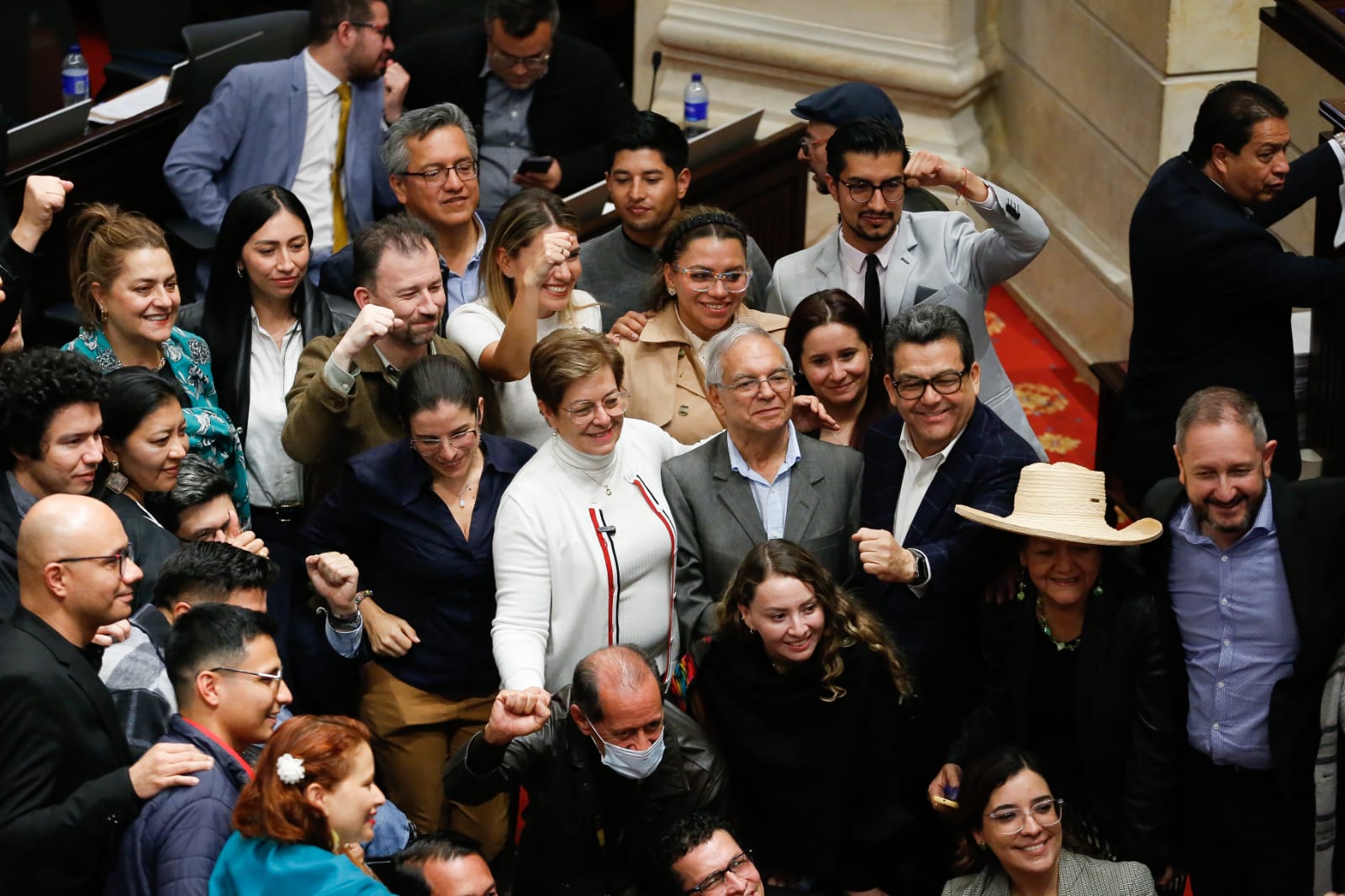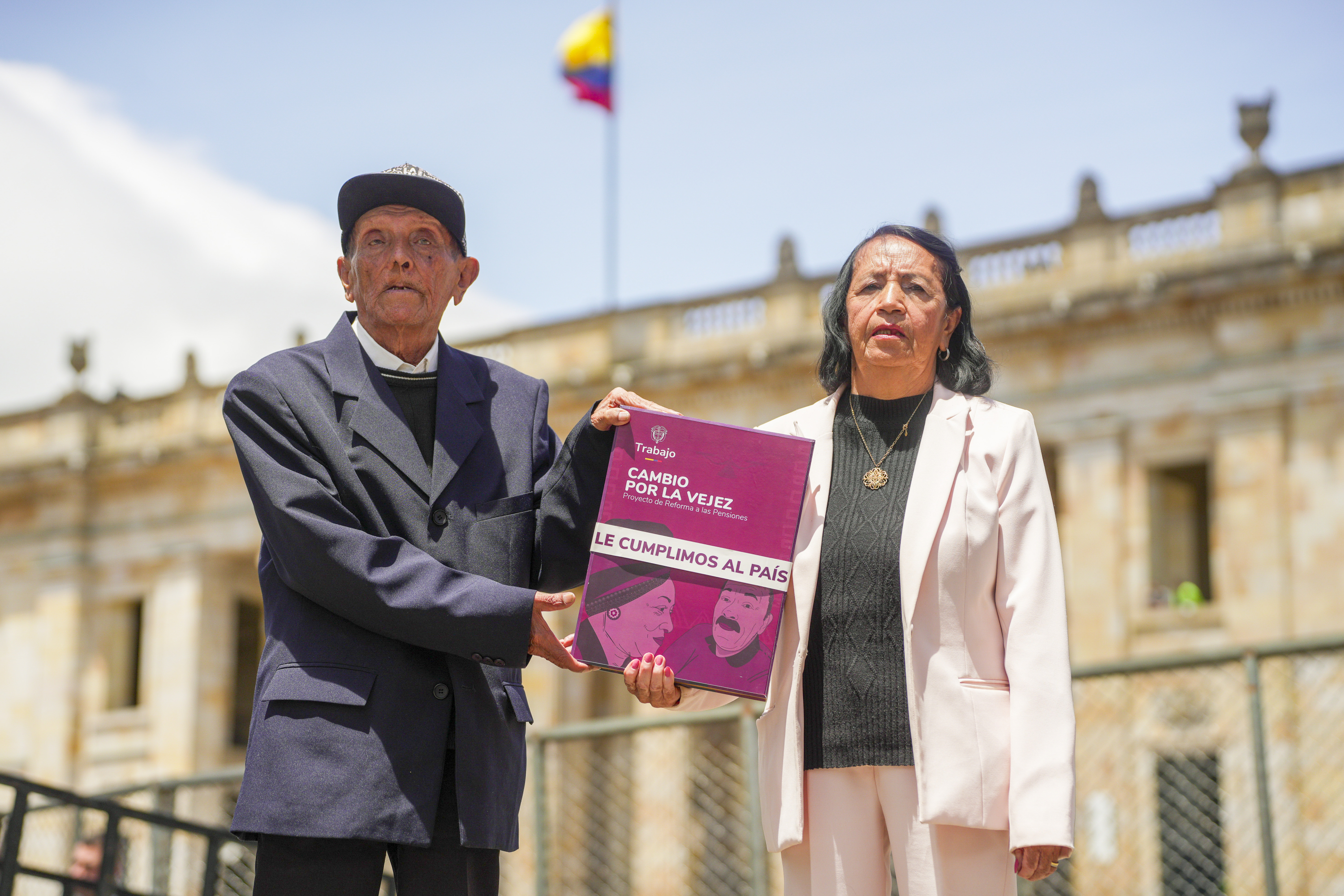Pensions in the air / Analysis by Ricardo Ávila

It may be a cliché, but there's no doubt this is a true race against time. It would even be valid to talk about two related issues: the pension system in Colombia, which, according to a law passed by Congress last year, is scheduled to begin operating on July 1st.
However, with barely a month left until the zero hour, it's unclear what will happen to the scheme. On the one hand, there is uncertainty regarding the validity of the regulation that defined the new rules of the game. On the other hand, there are serious doubts about Colpensiones' ability to appropriately assume an enormous responsibility involving some 25 million members.
As if that weren't enough, a lengthy regulatory decree was issued in mid-May, and drafts of two more were published last week, establishing procedures and creating requirements. Given the complexity of the matter, stakeholders are in the process of understanding and digesting what amounts to detailed plans for a large building.
Given the magnitude of the task, the ideal would have been to have sufficient time to point out inconsistencies here and potential contradictions there in an atmosphere of cooperation among the various stakeholders. But as the deadline approaches, expressions such as "the best is the enemy of the good" or "the burdens are accommodated along the way" begin to be heard.
We'll see The initial problem is that it's not even known if the path will exist. As is known, the Constitutional Court is still waiting to rule on the procedures followed to adopt what is, to date, the main legislative achievement of the Petro administration.
Some things, it's true, will never be reversed. For example, once the window opened allowing for the opportunity to transfer between pension plans without the ten-year limit that existed before, more than 73,000 people had switched to Colpensiones by mid-May. Presumably, the reason was the belief that the average-premium system benefits them more, something that is true in cases like those with high incomes who qualify for the scheme that is beginning to wither away.

Colpensiones will have to receive approximately 25 million members. Photo: César Melgarejo
Returning to the analysis of constitutionality, the discussion revolves around procedural flaws. Already in the final part of the debate in the Capitol, the House of Representatives plenary accepted the text it received from the Senate through a "pupitrazo" (a type of "desktop vote"), without opening a space for debate, much less examining a host of proposals presented by various parliamentarians.
Such an outcome would have violated the provisions of the political charter and the very essence of the bicameral system, which states that any bill must be subject to detailed scrutiny, taking into account different points of view, before proceeding to a vote. Since in this case the majorities close to the government imposed their will, silencing the opposition, a fundamental principle would have been violated.
Matters are further complicated by the corruption scandal involving funds from the National Unit for Disaster Risk Management. On May 7, news broke of the arrest warrant, now in force, against Iván Name and Andrés Calle, who were presidents of the Senate and the House, respectively, at the time the initiative was approved.
While the focus has been on the former, for the purposes of the pension proposal, it was the latter that ultimately proved key. Were the billion pesos that, according to the accusations, the Liberal representative for Córdoba received what determined the process to move forward in a hurry? That is a question that the courts will have to answer.

Pension reform approved Photo: Presidency
For now, and back before the Court, what is known is that a negative motion has already been filed, written by Jorge Enrique Ibáñez, president of the corporation, which would derail the reform due to procedural flaws. Such a position will have to be accepted or modified by his colleagues, although the outcome is unclear.
Those familiar with the matter propose three scenarios. The first is a collapse, and the second is full approval, the result of a decision headed for a split, in which not only legal arguments come into play, but also the closeness of some judges to the Casa de Nariño.
A third option would be to return the text to the House for correction of what could be described as a procedural error rather than a substantive one. In this scenario, the discussion that was suppressed last time would take place before repeating the final vote.
Although at first glance the different forces would behave in the same way and the outcome would be the same, there is always the possibility that the dispute could become more complicated and there could be modifications that would force a compromise with the Senate's version. That is why all eyes are focused on the Court, where there are obstacles for some judges—such as the newly elected Héctor Carvajal— and the appointment of an associate judge will likely become necessary in the event of a tie.
It's also not unreasonable to think that time will run out and the new model's entry into force will have to be postponed for one or more months. In that case, there would be social and political ramifications that must be considered, especially in light of the upcoming electoral season , as it would affect the implementation of the solidarity pillar that benefits those over 65 (60, in the case of women) living in extreme poverty.
It's undeniable that the level of tension is high. When former minister José Manuel Restrepo expressed on the X network last week that a verdict against the law in question would prevent the State from assuming an estimated additional liability of 54 billion pesos, Gustavo Petro lashed out: "He's asking that the Court not grant a pension to the Colombian people, nor a pension bonus to all the elderly men and women who are currently without a pension."

Ministers at the House of Representatives' approval of the pension plan. Photo: Néstor Gómez. EL TIEMPO
That urgency is required is undeniable. Until a ruling is issued otherwise, the July 1st deadline remains in effect. Once the transfer of millions of members from private fund managers to Colpensiones is complete, attempting to reverse the situation would be traumatic in many ways.
Trial by fire As things stand, in less than five weeks the entity will receive contributions from all active workers linked to the social security system, for the first 2.3 minimum wages (3.27 million pesos per month). In practical terms, for nine out of ten people, this will constitute their entire contribution.
The amount of income the institution will receive is significant. The estimate is that approximately 3.5 trillion pesos will arrive monthly, more than double the current figure. As for individual contributors, the number will increase from 2.8 million to 10.2 million. If those with open records are included, the figure is an additional 19 million, bringing the total to more than 25 million.
Such a volume is an immense challenge. Even under normal conditions, the change in magnitude would require extraordinary preparation to ensure the transition is seamless and the user doesn't notice the difference.
Among the emerging internal challenges are staff training and the IT challenges required to meet the many demands currently facing them. There is evidence that some progress has been made, but there are those who point out that doubts far outweigh certainties at the organization led by Jaime Dussán.
It's enough to list the procedures that citizens will most quickly demand, aside from the usual pension payments for retirees: disability payments, survivor's pensions, disability pensions, and an avalanche of inquiries regarding access to the new subsidy and the other established pillars.

Pension reform approved in Plaza de Bolívar. Photo: Presidency
A good response requires having access to each member's employment history in order to respond truthfully to inquiries and advice. It seems feasible that, given the limitations in the technological field, the answer is to increase the payroll and branch network, which, in any case, make a good information system essential. In day-to-day work, it is essential that each member's contributions are properly credited so that no one loses weeks. When complaints and claims arise regarding potential inconsistencies, responses must be provided quickly.
In the midst of this chaos, the likelihood of making mistakes is greater, especially if some of the work ends up being done manually. Backlogs are possible, as are complaints from the public, who are now accustomed to knowing how their accounts are doing with a few clicks.
On the other hand, complexities also abound for the administrators of the complementary individual savings component (Accai), which includes the current pension fund administrators and the state-owned Positiva Seguros. These include the creation of ten new funds, based on age groups, with no clear compensation criteria for managing these funds.
An additional issue is that, as established by law, Colpensiones must transfer a monthly sum to the Bank of the Republic for the contributory pillar savings fund, which will be managed by the Issuer. While transfers should begin very soon, the decree regulating this vehicle has not yet been finalized , nor has the contract to be signed with the Nation been signed.
Loose ends of various kinds abound as the calendar ticks by. For this reason, many officials quietly comment that the best practical solution would be to have a respite from the Constitutional Court , should it determine that Congress is obligated to amend a misstep it made.
Whatever the case, the road ahead is very demanding. Beyond the discussion about the sustainability of a reform that increases the burden on future generations and fails to address the coverage gaps in the system it replaces , there is the obligation to occupy a new house to which it seems rooms are being added and other spaces are being removed along the way.
Far from a well-planned path, there's a significant dose of improvisation that's unsettling. Doing things "the Colombian way" is sometimes associated with the ability to be creative and find a way out amidst the challenges.
But in this case, what we see is that the future management of pensions is still up in the air due to a series of uncertainties. It's a shame that what's at stake here are the hopes and well-being of millions who are wondering not only what the distant future will bring , but also what will happen to them starting next July 1st.
eltiempo





